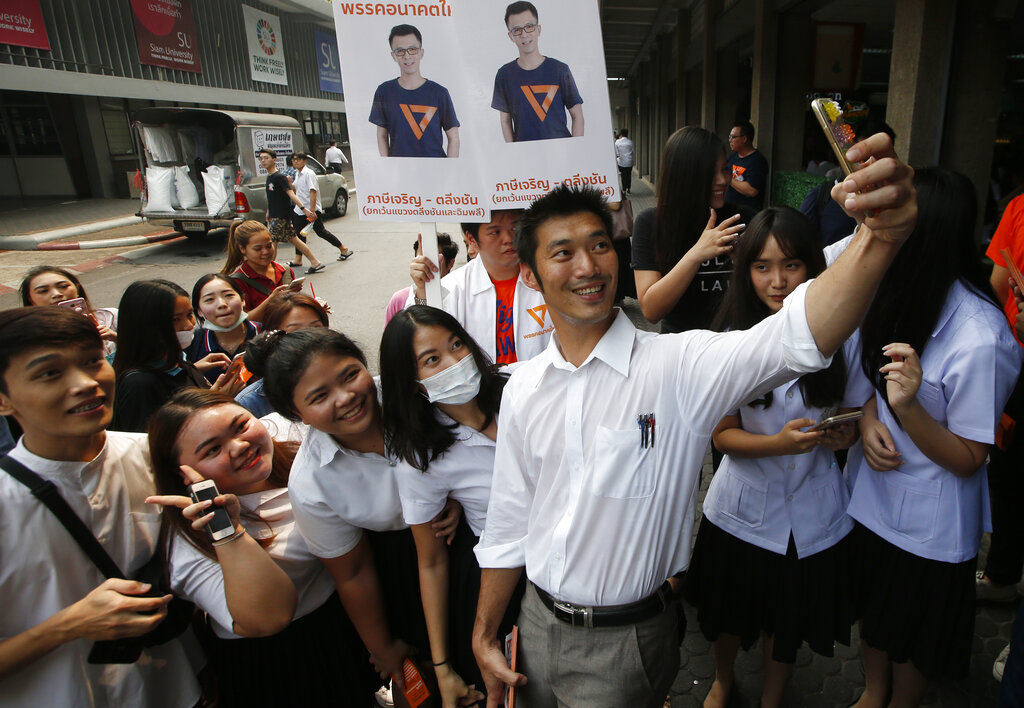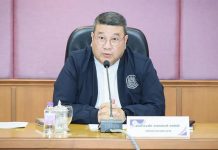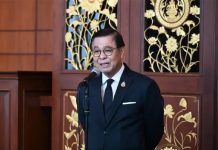
Bangkok (AP) — You could call it the 7 million-voter question: Will young people like the ones who turned out on a recent Saturday night to listen to politically hip rappers also make it to the polls for Thailand’s upcoming general election? And do they share the anger at the established order being sung and shouted about onstage?
Topping the recent concert bill was the group Rap Against Dictatorship, whose surprise hit, “My Country’s Got That,” lambasts the hypocrisy of Thai society. Some of the song’s milder lyrics describe Thailand as “the country whose Parliament is a parlor.”
The breakthrough song has garnered almost 59 million views since its release on YouTube last October. Judging by the crowd at the concert, most of its fans hail from the 18-to-35-year-old demographic that makes up roughly a quarter of Thailand’s 51 million-strong electorate.
This generation is too young to hold many memories of a Thailand that was not politically troubled.
While many political parties are fielding younger candidates for the upcoming general election, it’s the Future Forward Party, founded last March, that seems to have captured the imagination of many young voters.
Party chief Thanathorn Juangroongruangkit, who can tap into a family fortune from the auto parts industry, projects an image similar to a Silicon Valley entrepreneur. Tall and trim, and favoring casual dress, the 40-year-old is tech-savvy and practices extreme sports. He also has a low-profile history of supporting progressive organizations, while most of his core team is younger and directly involved in activist groups promoting causes such as rights for the disabled, the LGBT community and the #MeToo movement.
“My idea is to make this party stand for democratic principles,” Thanathorn said at the party’s debut last year. “We will make democracy a part of every decision-making process from the choosing of party members, the determining of party direction and strategy, to the developing of party policies.”
The party’s broad-stroke policies are a response to Thailand’s political impasse.
“I think the conflict over the last 12 years has educated the people that politics is important to their lives,” Thanathorn said in an interview at a campaign event at Siam University in Bangkok. “Political awareness in this country has never been higher.”
Boonyanuch Prachasingh, a 20-year-old student at the university, said she is looking for a party with strong policies on education, democratization and transparency, and capable of change. She said Future Forward sounds interesting “because they are making a point of encouraging us to pay attention to politics.”
A fellow student, 21-year-old Kittiphum Pannadermitri, believes the economy is the most pressing issue.
“I think Thanathorn is from a new generation and has new ideas. I think he could help improve the economy, help Thai farmers, and tackle pollution problems,” he said.
Concertgoer Sawitree Puangngern, 23, said interest in the election is high among her peers, and she has already decided to vote for Future Forward.
“I am interested in the party that says they want change,” she said. “I want the people to have their rights back.”
Although Future Forward is hoping it can pick up as many as 50 to 70 parliamentary seats, it faces substantial hurdles as a newly established grass-roots party facing experienced opponents.
Still, the party’s prospects for capturing the youth vote look good, said Prajak Kongkirati, a lecturer in political science at Bangkok’s Thammasat University.
“They are popular and their policies are popular,” he said. “They advocate change and radical reforms. So the youth, who are frustrated with the stagnation of the country, want to see a real change. And Thanathorn is kind of their hope, represents something new, speaks their own language and can connect to the youth.”




